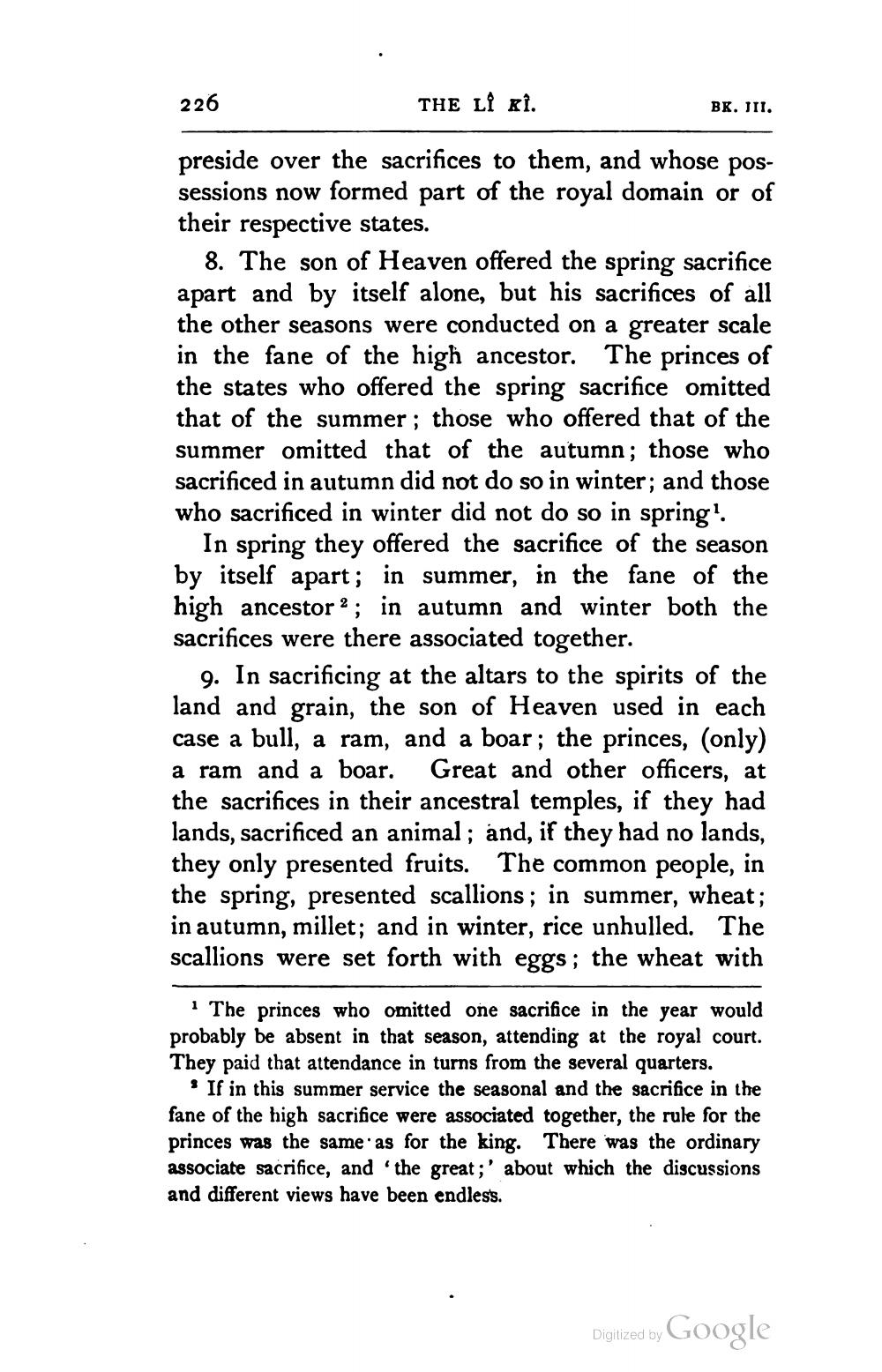________________
226
THE LÎ ki.
BK. JII.
preside over the sacrifices to them, and whose possessions now formed part of the royal domain or of their respective states.
8. The son of Heaven offered the spring sacrifice apart and by itself alone, but his sacrifices of all the other seasons were conducted on a greater scale in the fane of the high ancestor. The princes of the states who offered the spring sacrifice omitted that of the summer; those who offered that of the summer omitted that of the autumn; those who sacrificed in autumn did not do so in winter; and those who sacrificed in winter did not do so in spring?
In spring they offered the sacrifice of the season by itself apart; in summer, in the fane of the high ancestor ? ; in autumn and winter both the sacrifices were there associated together.
9. In sacrificing at the altars to the spirits of the land and grain, the son of Heaven used in each case a bull, a ram, and a boar; the princes, (only) a ram and a boar. Great and other officers, at the sacrifices in their ancestral temples, if they had lands, sacrificed an animal; and, if they had no lands, they only presented fruits. The common people, in the spring, presented scallions; in summer, wheat; in autumn, millet; and in winter, rice unhulled. The scallions were set forth with eggs; the wheat with
The princes who omitted one sacrifice in the year would probably be absent in that season, attending at the royal court. They paid that attendance in turns from the several quarters.
* If in this summer service the seasonal and the sacrifice in the fane of the high sacrifice were associated together, the rule for the princes was the same as for the king. There was the ordinary associate sacrifice, and the great;' about which the discussions and different views have been endless.
Digitized by Google




